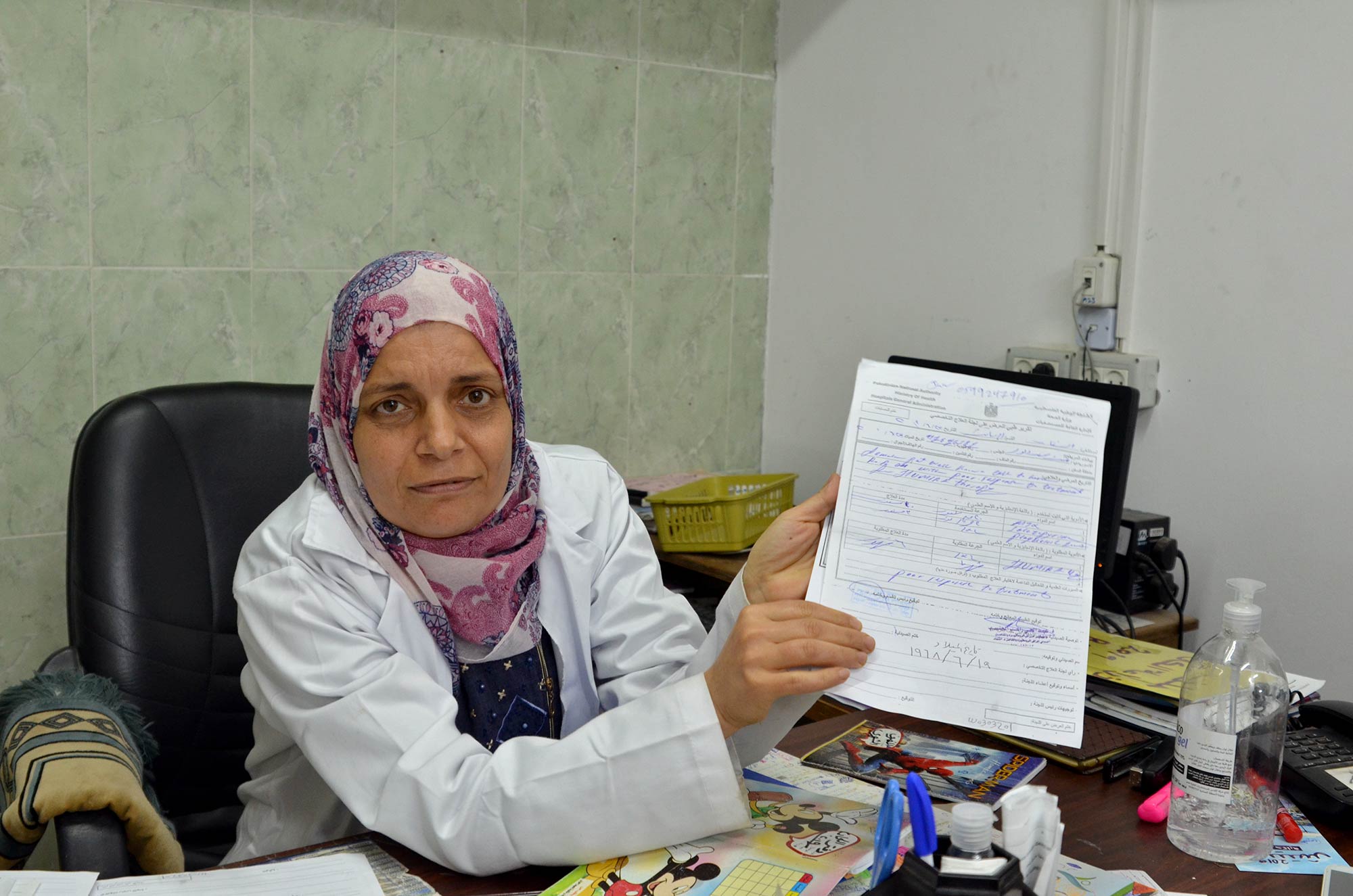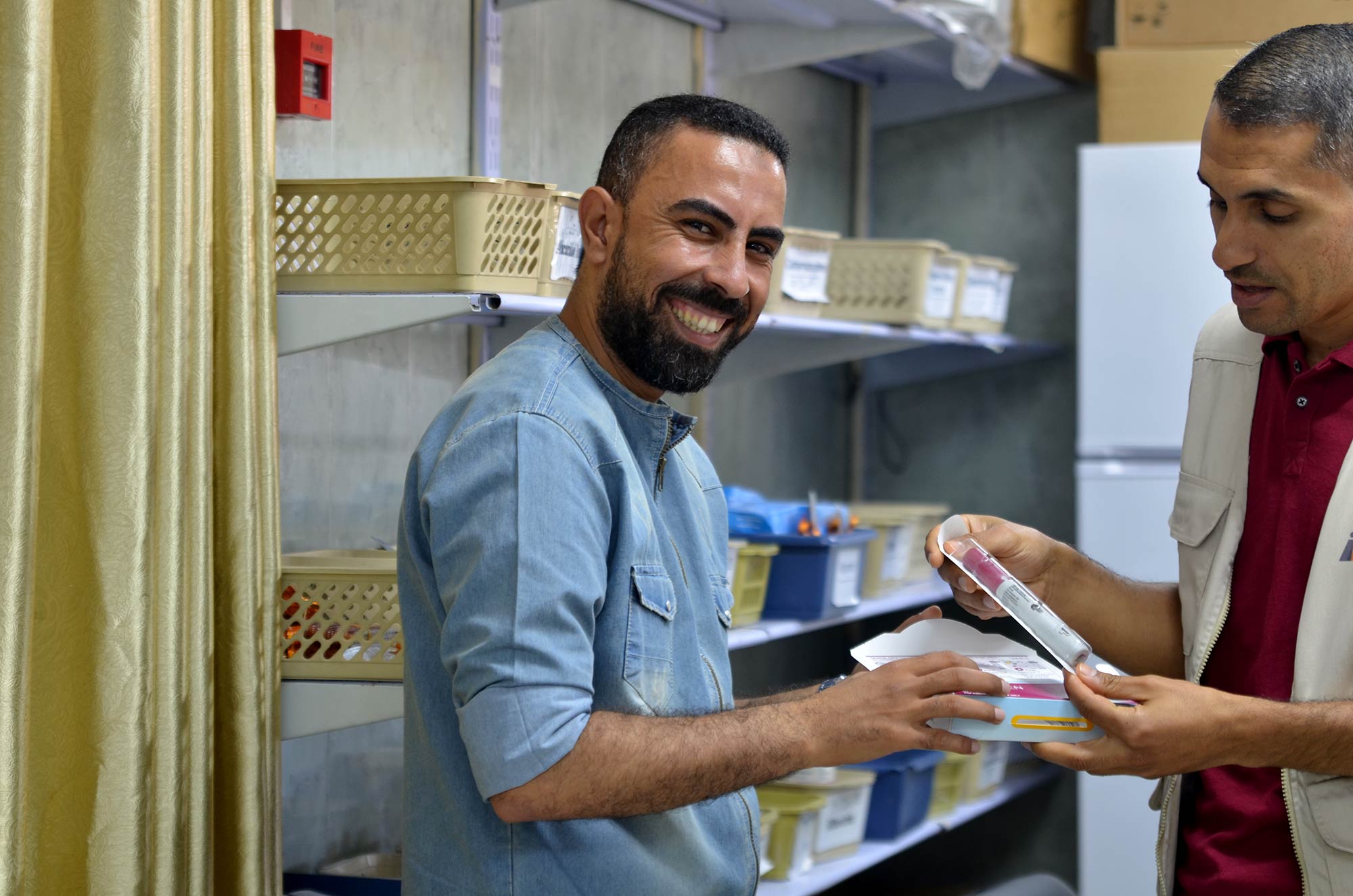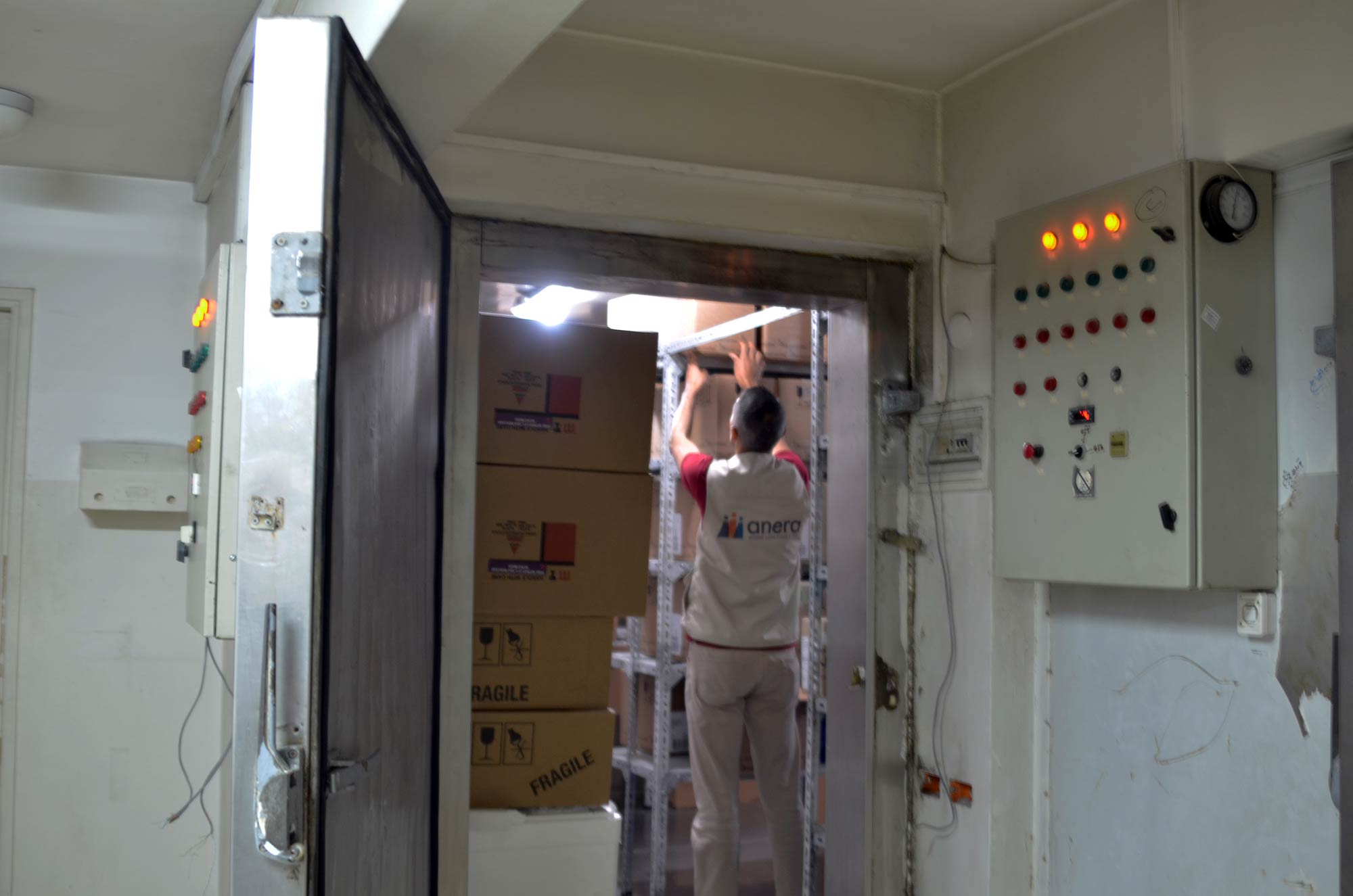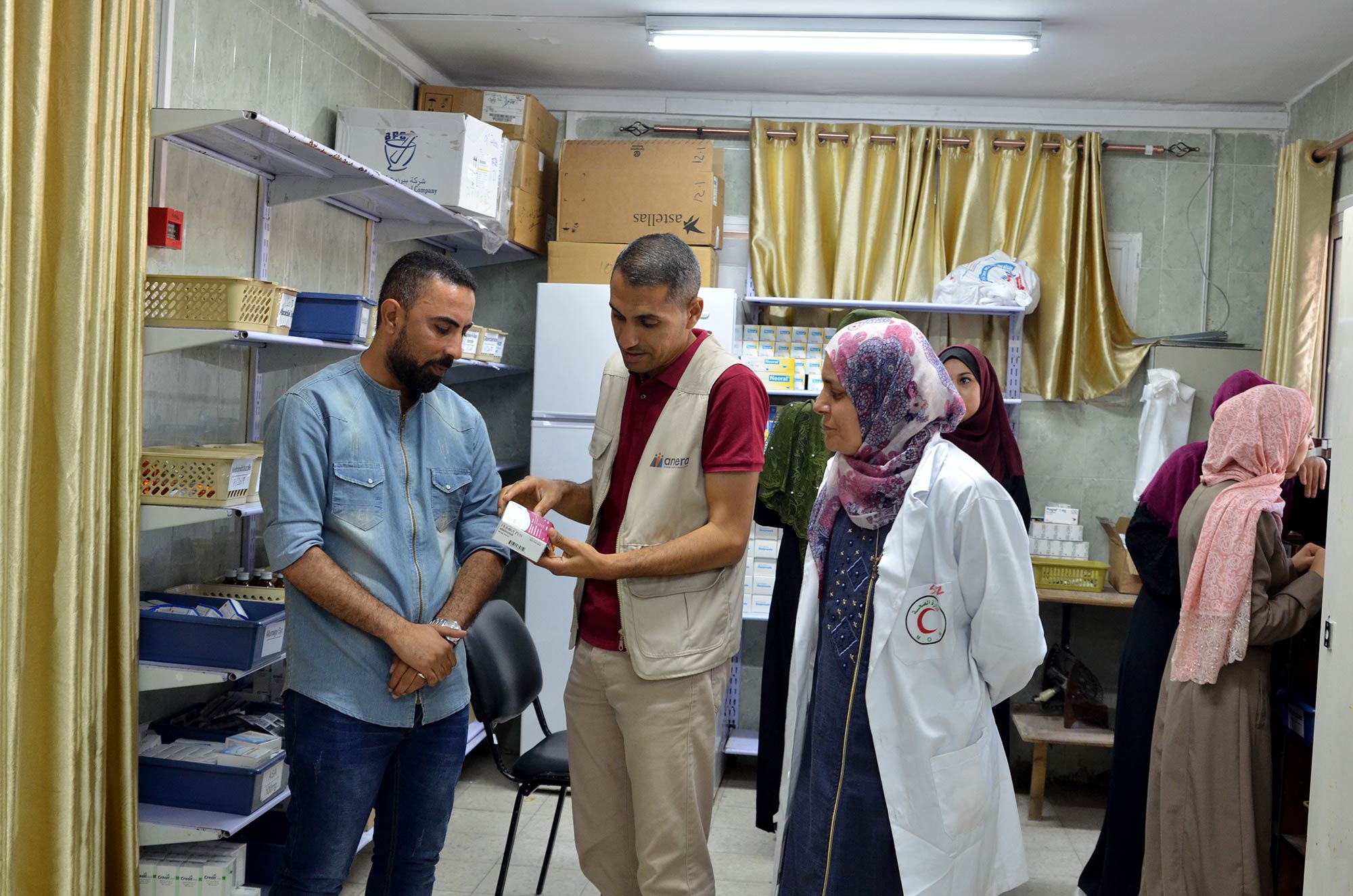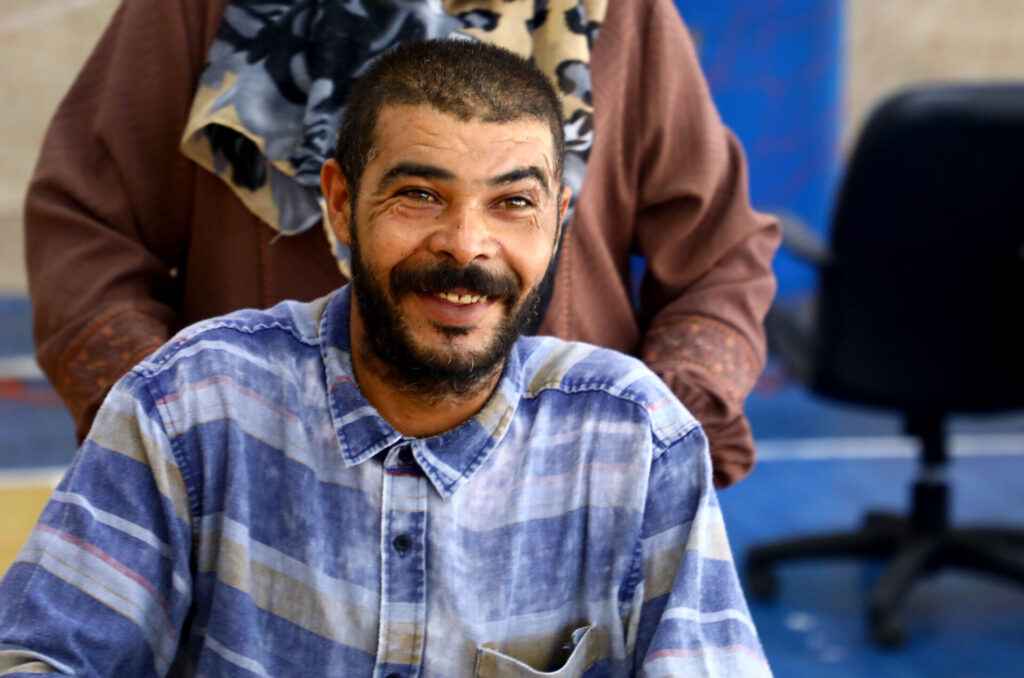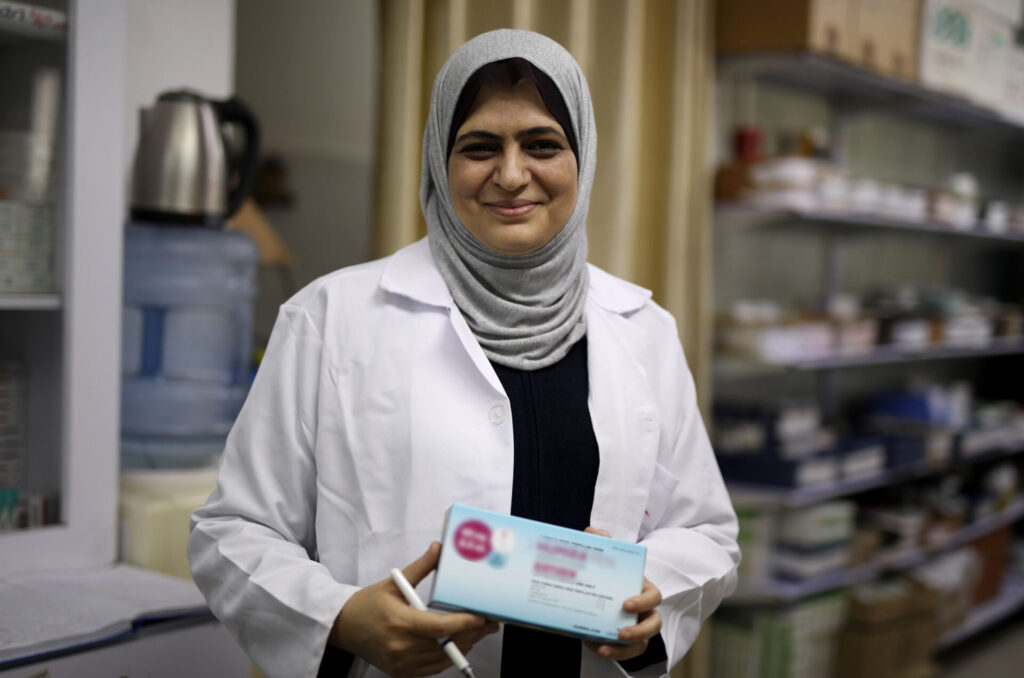HEALTH
Treating Crohn's Disease Patients in Gaza
Jul, 2019
“The highlight of my day is when I can transfer patients from the waiting list and tell them that their medications have arrived." - Dr. Sohair El Zomarah
Mustafa, 30, is a journalist from Gaza who has suffered from severe gastrointestinal attacks for nearly a decade. In the beginning, he only experienced serious abdominal pain about twice a year. As his symptoms worsened, he suffered weekly attacks. He lost his appetite and experienced fevers, weight loss and diarrhea.
"I used to take painkillers like ibuprofen and Tramadol in large quantities but nothing helped," Mustafa recalls.
As his health worsened, he went from one hospital to another undergoing invasive tests like colonoscopies and gastroscopies to try to get an accurate diagnosis. "As a patient living in Gaza, I couldn’t get permission to travel to the West Bank for a specialist to diagnosis of my condition," Mustafa says.
Mustafa lived with his condition for years, while doctors diagnosed him with everything from cancer to colorectal disease. Finally, in 2016, after six years of hospital visits, he was diagnosed with Crohn's disease.
"It was the most terrible moment in my life when I first heard about Crohn's. I couldn’t accept it," Mustafa adds.
Crohn's is an inflammatory bowel disease that causes inflammation of the digestive tract. The exact cause of Crohn’s disease remains unknown but is believed to be connected to immune system function.
"Crohn's is likely to develop when you’re young - most people are diagnosed before they are 30. This disease can threaten a person’s future," Mustafa says.
Although there is no cure for Crohn's, through treatment and therapy patients can adapt to it and greatly reduce the symptoms.
Treating Crohn's in Gaza
Although Mustafa had finally been accurately diagnosed, he found that the appropriate medicines for treatment are not widely available in Gaza.
At hospitals in Gaza, the number of patients on the wait list for adalimumab, a prescription medicine prescribed to treat Crohn's disease, is growing. Few patients can afford to pay the market rate cost per injection. Cost aside, without a national-level intervention adalimumab would still be difficult to obtain in Gaza because of the careful temperature controls the drug requires.
Anera recently imported a shipment of adalimumab to Gaza and Mustafa is one of the many patients who now have access to treatment as a result.
"Since I started taking adalimumab four months ago, I’ve stopped needing to go to the hospital except in urgent cases," Mustafa says.
Cold Chain Transportation to Gaza
Anera recently distributed 2,004 vials of adalimumab to Al Shifa Hospital, Gaza's largest health facility. Anera and our partners imported the supply of adalimumab keeping shipping conditions carefully controlled from the adalimumab manufacturing facility in the US until arrival in refrigerators at Al Shifa Hospital in Gaza.
Dr. Mostafa Al Ghosain, Anera’s in-kind manager in Gaza, explains that temperatures inside the containers of adalimumab had to be kept between 2-8 degrees celsius. Two temperature monitors inside the boxes recorded the temperature continuously.
Anera’s team downloaded the temperature data records to verify that the vials remained within the required temperature range throughout the journey to ensure the drug is safe and effective. Anera shared the data with Direct Relief and the pharmaceutical manufacturing company.
Even when medicine is available in Gaza, chronic electricity shortages threaten to spoil temperature-sensitive medicines. Drugs like adalimumab require constant refrigeration that cannot be maintained in households subject to 18-hour power cuts. Therefore, some patients ask to keep their medicines at the hospitals. Gaza’s hospitals run emergency generators to sustain critical services.
Direct Relief generously donated the medicine.
Expanding Crohn’s Disease Treatment and Awareness in Palestine
Shipments of badly needed medicines like adalimumab provide enormous relief to the health care system in Gaza.
“The highlight of my day is when I can transfer patients from the waiting list and tell them that their medications have arrived,” says Dr. Sohair El Zomarah, of Al Shifa Hospital.
Mustafa’s experiences as a patient have moved him to become an advocate for greater awareness. He is taking advantage of his professional connections to work with journalists, doctors and engineers in the West Bank to increase public awareness of Crohn's disease. He also wants to educate young people in Gaza about the disease to help ensure that they are accurately diagnosed and know how to manage the condition.

